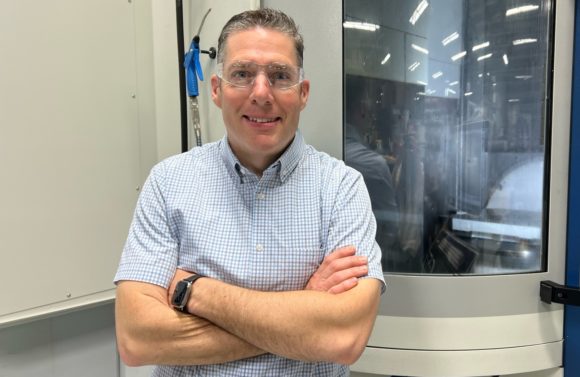Today’s guest on the podcast is Matt Wardle, owner and President of JD Machine Corp. in Ogden, Utah. JD Machine currently produces around 4,000 active part numbers, serving a diverse group of sectors, which include aerospace, defense, and medical.
Matt says he sometimes envies other machining companies who have a more narrow focus on the types of parts they produce because it simplifies their operations. Yet, he insists that producing a diverse group of parts is the best path for his company to have longterm success.
Follow us on Social and never miss an update!
Facebook: https://lnkd.in/dB_nzFzt
Instagram: https://lnkd.in/dcxjzVyw
Twitter: https://lnkd.in/dDyT-c9h
Main Points
Emphasis on Diversification
JD Machine is a three-generation job shop with a little less than 200 employees. The company builds a lot of component parts and assemblies, mainly doing fabrication and precision CNC machining. It serves industries such as commercial aircraft, defense, aerospace, medical device, and medical implant. Matt says the company diversifies its product line to succeed during the ups and downs of economic cycles. Producing 4,000 different part numbers, he jokes that company “sacrifices sanity for stability.” It is tremendously difficult because every new part in production comes with its own unique challenges. However, JD’s workforce has greatly benefited from the experience of constantly running new jobs that pose new problems to overcome and learn from.
Workforce Development
In recent years, Matt has moved his energy away from the day to day operations of JD Machine, now focusing on workforce development. His goal is to attract more young people to manufacturing trades, machining in particular. He gives talks at high schools and colleges about manufacturing career opportunities. He also organizes tours and open houses of machining companies. Matt says that JD Machine has had a steady pipeline of young talent, which can be somewhat attributed to his efforts.
Since 1999, JD Machine has had a U.S. department of Labor certified apprenticeship program. The program requires participants gain experience in a variety of different types of equipment. This gives the company’s team a comprehensive understanding of the manufacturing process that some other machining companies lack. JD Machine’s shop features multi-tasking mill-turn lathes, horizontal machining center cells, and multi-turret CNC lathes.
Matt Loves Millennials
Matt says he loves the millennial generation for their initiative to approach challenges in the shop in new ways. He likes that they question the status quo. He says he is proud of JD Machine’s culture, comprised of experienced machinists working alongside younger ones. The younger machinists may know less, but they are hungry to understand all of the capabilities of machines.
Matt also likes that Millennials want to be part of something meaningful, rather than just be satisfied punching the clock. Often management talks to employees about what applications parts are going into, explaining for example, how a part can play a role in saving lives or enabling transportation.
Networking with other Machining Companies
Matt gives a lot of his attention to networking with other shops. He is an active member in the National Tooling and Machining Association (NTMA). He also has a group of three other owners he talks to every month. They talk intimately about processes and technology. They also organize visits for their teams, touring each other’s shops via Zoom.
The Machining Business is Complicated
I asked Matt, if he were to start a machining company today and had to focus on one sector, what would it be. He responded by joking that he wouldn’t start a machining company. He says he has never encountered a more complicated business.
He likens the machining business to fly fishing for trout. In order to be a successful fly fisherman a lot of things have to go right. If you want to grow a machining company it exploits every weakness your business has. A great machining company has to have good people, good systems and a sound customer base. Growth can be a good thing, but he does not want growth if it comes at the cost of any of the qualities he values most. In fact, Matt says he wants JD to grow less. He refutes the old expression that “if you’re not growing your dying.” He says if a shop recognizes who they are and does what they do great, they can be very successful.
I finished the interview asking Matt what his comfort zone is and if he is trying to break free of it. He says that his hunger for continuous improvement and growth of technology has made him into a person who is never content. Right now, he is working on letting go somewhat and backing off management. Though he loves making changes and improvements, he realizes that sometimes less is more for an organization.
Question: What new types of parts would you like your machining operation to go into?
Podcast: Play in new window | Download





1 Comment
dark web market list incognito url